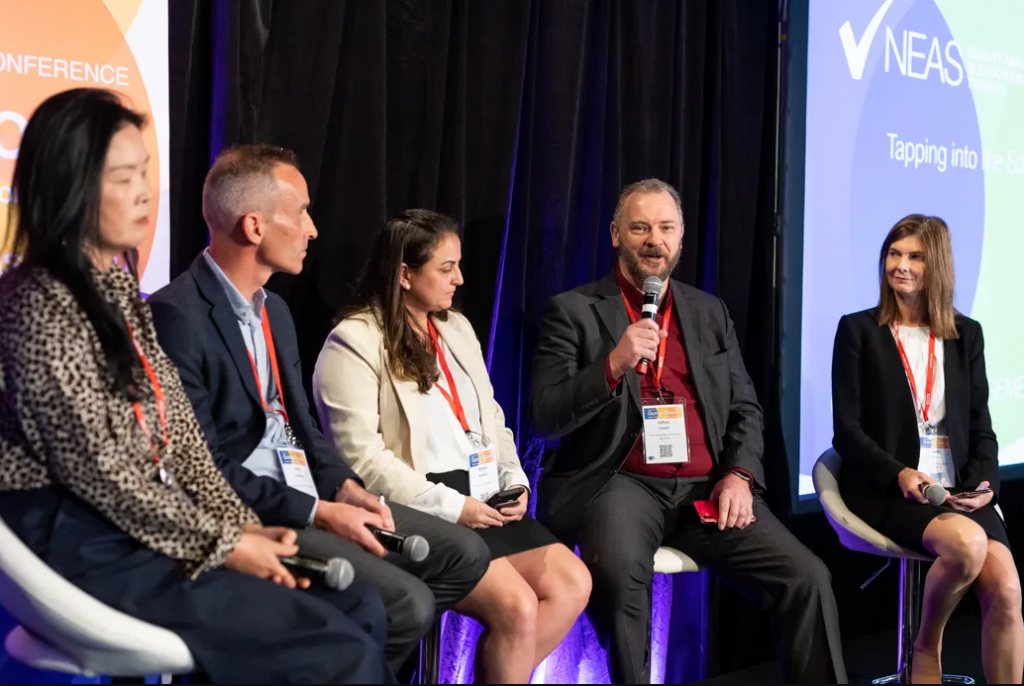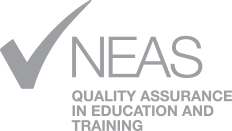Communities of Practice
Communities of Practice are a valuable source of collaborative professional development as they offer English Language Teaching (ELT) professionals a supportive environment to share knowledge and build better practices. They provide a rich resource of knowledge, experience and expertise in order to achieve common goals, solve common problems and learn from one another to advance and grow.
Participation in the NEAS Communities of Practice is worth 10 CPD points and is open to:
- Employees of NEAS Endorsed centres
- Associate members
- Individuals who have had a NEAS qualifications check
- Participants in webinars, NEAS QLS and Core courses and Specialisations
- Individuals listed in the NEAS ELT Professionals Listing
“Communities of practice are groups of people who share a concern or a passion for something they do and learn how to do it better as they interact regularly.“

NEAS Communities of Practice in ELT
High School Preparation (HSP & PSP)
This COP is for ELT professionals who would like to develop their knowledge and practices in school preparation programs. It provides an overview of the key features of school preparation programs and provides participants with practical tasks to apply to their centres. Topics of discussion in this area include welfare and pastoral support for students and transitioning to receiving (mainstream) school education. NEAS endorses a number of high schools as Quality Centres.
Arts Based Pedagogy in ELT
This COP is for teaching professionals who would like to embed the arts and drama into their teaching repertoire. It introduces the benefits of alternative teaching methods in the ELT classroom and provides participants with a supportive structure to begin their journey into the world of the arts in ELT. Topics of discussion in this COP include the power of drama in teaching, reflective self-assessment and professional development opportunities in this space. NEAS CEO, Dr Patrick Pheasant has a keen interest in this area and is passionate about integrating modern and unique teaching methods into the discipline of ELT.
ELT Qualifications
This COP is for ELT professionals who would like to explore further study options and learn more about ELT qualifications. The course provides an overview of the key features of ELT qualifications and provides participants with practical tasks to guide their choices for further ELT studies. NEAS endorses a number of ELT Qualification providers across a variety of areas.
Research in Quality Assurance
This COP is for ELT professionals who would like to learn more about research in Quality Assurance. This COP provides an overview of the benefits of engaging in research and provides participants with practical tasks to encourage and support engagement in research. Topics in this area include the continuum of research and the role of Quality Assurance. The NEAS Endorsed Master Practitioner badge is awarded to industry professionals who undertake an area of research of their own specialist interest.
Leadership in ELT
This is for ELT professionals who would like to develop leadership knowledge and skills. This COP applies a number of fundamental leadership theories and provides participants with practical tasks and techniques to apply to their professional context. Topics of discussion in this area include leadership styles and team management, team development and self-management. All NEAS Endorsed ELT Professionals have demonstrated Leadership in ELT and are the aspirational individuals in the ELT community.
Education Agents
This COP provides ELT professionals with an overview of the role of education agents in student recruitment. Participants in this COP will learn the advantages of working with education agents in student recruitment and learn how to recognise and build strong relationships between schools, centres and education agents. Topics of discussion in this area include the agent/student lifecycle and best practices in working with education agents. NEAS Endorsed Education Agents are measured against Quality Area J of the NEAS Quality Assurance Framework.
